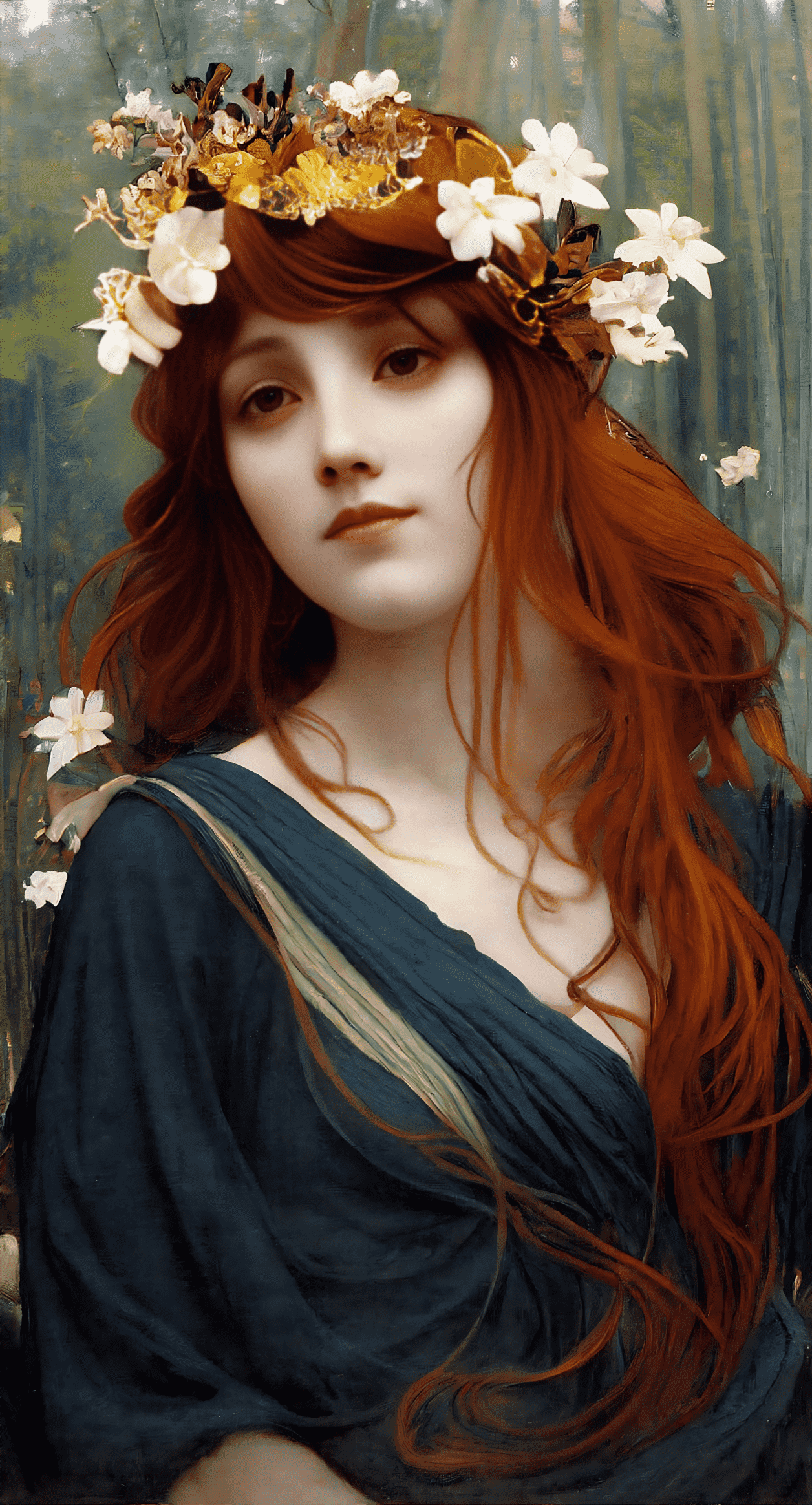Byansa
"Oh Lady of Ardour with your flaming-hearth hair, heed my cries on a wedding day. I toast unto you unhappily but, if I cannot escape matrimony, bless me in all your grace a thousand arrows."Within the Niua pantheon, Byansa is the Goddess of the hearth, families and most importantly, marriage. Depending on myth, she is often the twin or closely related to Sholeu, goddess of lust and childbirth. She is one of the 14 who are commonly worshipped.
Mythological Confusion
Scholars in Khalan love to argue, and if they are not insulting each other politics or their reading of some historical annalect, the conversation turns towards religion. Byansa is a key Goddess to fight over, her reverence is pratical and the Amtar who codified most of the religion must've needed her as much as Niua's modern flock must, yet she is often absent from the Uzhesheka. She often does not have myths about herself, though she is a supporting character to many heroes. Often having convinced Melmi, weaver of fates and prophecies, to make them great. She is perhaps most prominent in the tale of the hero Ghenan and the story of him and his Bride who Byansa convinced to leave on the altar in order to pacify one of Idva's great plagues. In Ugane Niuism, she is also prominent in The Ousting, the mythological explanation as to why Faskato replaced his brother, Henezu as the most worshipped God.Duties
The Patron Of Nurses
Nurses do not often get the respect that they deserve, especially with plagues lost to the public's ailing memory. So, Byansa keeps the mostly female workforce in good spirit, guarding their spaces and their names with her highest charms. Doctors in particular heed the Goddess' warning, otherwise, it is said they will be impotent or, depending on the region, every baby in their care shall pass, making them an omen of misfortune.The Nightime Visitor
Children do not choose the background they are born into, and no Gods besides the fates and the seasons at their loom can influence them. So, Byansa, pushing them toward life pays one visit to them. It her way of blessing them from the fates' cruelty. Distrinctive birthmarks are celebrated; they are a sign of her touch.The Alm-giver
Families can often be given bad luck. So, in pity, Byansa tiptoes into their dwellings and leaves little things for them. Some cloth, a toy, some bread or some Na'a perhaps. Whatever, the family cherishes it divine saviour.Lady of the Muses
The Oupi can create many a ballad about their flame-haired companion. Songs about her fill the hall of Zaba's Hundred-roomed chambers. But, she is also asked by bards to tell myths, though the bards who ask are mothers looking to spin their children a yarn or two about some trivial topic.Mother of Good and Bad
She is the mother of the Blessings, a set of goddesses relaing to the blessings given to a virtous women, such as easy births and timless beauty. However, she is also the mother Lalka, the goddess of rage and bloodshed, wife and puppetmaster to Dukhed.
Current Status
Who knows? She could be wandering here or in Zaba's realm.
Church/Cult
Children
Pronouns
She/her





Comments